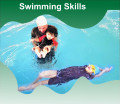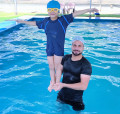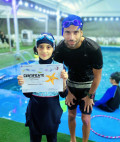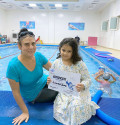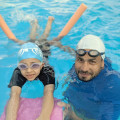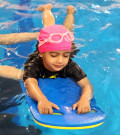
Healthy Foods for Swimming Kids, Fueling Their Success in the Pool
2023-09-09 - swimmingIn today's fast-paced world, it's crucial to ensure that our children are not only active but also consuming the right nutrients to support their growth and activities. If your child is an aspiring swimmer, providing them with the right foods can make a significant difference in their performance and overall health. In this article, we'll explore the essential foods that swimming kids should incorporate into their diet to stay fit, energized, and ready to make a splash in the pool.
Introduction: The Importance of Nutrition for Young Swimmers
As parents, we want the best for our children, and that includes supporting their interests and hobbies. If your child is passionate about swimming, it's essential to understand that their dietary choices can significantly impact their performance in the pool. Proper nutrition not only fuels their bodies but also helps with recovery and overall health.
Fueling Up with Complex Carbohydrates
Carbohydrates are the body's primary source of energy, making them essential for young swimmers. Opt for complex carbohydrates such as whole grains, oats, and brown rice. These foods provide a steady release of energy, ensuring that your child can maintain their stamina during long swim sessions.
The Power of Lean Proteins
Proteins are the building blocks of muscle, and for young swimmers, they are crucial. Lean protein sources like chicken, turkey, fish, and beans promote muscle growth and repair. Incorporate these foods into your child's diet to support their strength and endurance.
Incorporating Healthy Fats
While fats are often demonized, healthy fats are essential for overall health. Avocado, nuts, and olive oil are rich in healthy fats that provide sustained energy and support various bodily functions. Include these in your child's diet for optimal performance.
Hydration: The Key to Performance
Staying hydrated is non-negotiable for young swimmers. Dehydration can lead to fatigue and decreased performance in the pool. Ensure your child drinks plenty of water throughout the day, especially before, during, and after their swim practices or competitions.
Vitamins and Minerals for Swimmers
Swimmers require an array of vitamins and minerals to maintain their health and performance. Encourage the consumption of fruits and vegetables rich in vitamins A, C, and E, as well as minerals like calcium and iron.
Snacking Smart: Nutritious Options
Snacking is an integral part of a child's diet. Choose healthy snacks like yogurt, fruit, and mixed nuts to keep their energy levels steady between meals. Avoid sugary snacks and opt for nutrient-dense options instead.
Meal Planning for Swim Days
On days when your child has swim practice or competitions, plan balanced meals that provide sufficient energy and nutrients. A combination of carbohydrates, proteins, and fats will help them perform at their best.
Avoiding Unhealthy Choices
While occasional treats are fine, it's crucial to limit sugary and processed foods in your child's diet. These can lead to energy crashes and do not provide the sustained energy needed for swimming.
Balancing Nutrition and Training
Finding the right balance between nutrition and training is key. Consult with a nutritionist or dietitian to create a customized plan that suits your child's needs and goals as a swimmer.
Recipe Ideas for Swimming Kids
Here are some delicious and nutritious recipe ideas to incorporate into your child's diet:
· Banana and peanut butter whole-grain toast
· Grilled chicken and vegetable skewers
· Quinoa salad with mixed vegetables
· Homemade fruit smoothies with Greek yogurt
· Baked salmon with a side of steamed broccoli
Conclusion
In the world of competitive swimming, every advantage counts. By providing your child with the right nutrition, you are giving them the fuel they need to excel in the pool. Remember that a well-balanced diet not only supports their performance but also contributes to their overall health and well-being.
.







.jpg)




































































